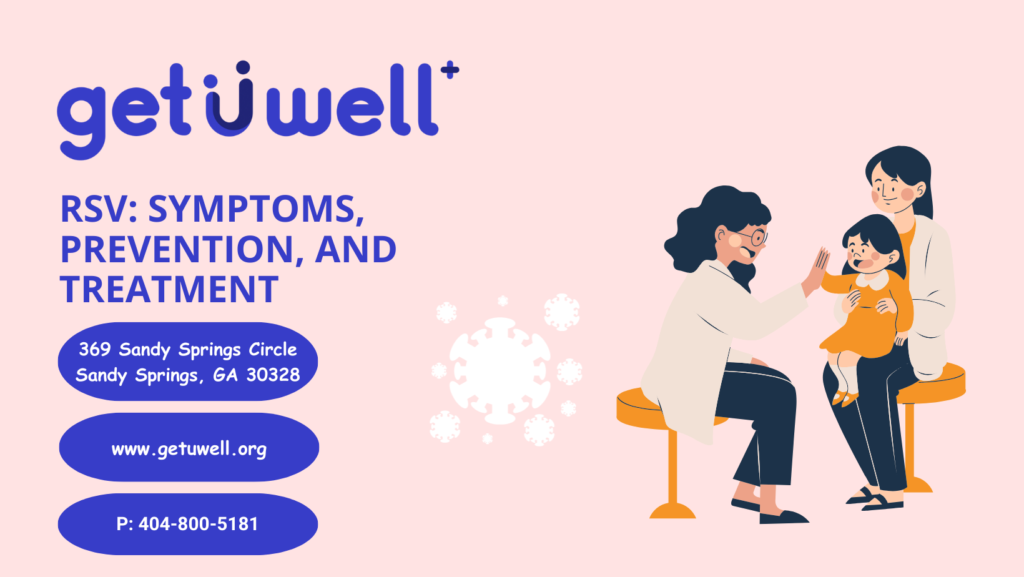What is RSV?
RSV is a highly contagious virus that primarily affects the respiratory system. It can cause infections ranging from mild cold-like symptoms to severe respiratory illness, such as bronchiolitis and pneumonia. RSV is most prevalent during the fall, winter, and early spring months.
Symptoms of RSV:
The symptoms of RSV can vary depending on the age and overall health of the individual.
Common signs and symptoms include:
- Coughing
- Sneezing
- Runny or stuffy nose
- Fever
- Wheezing
- Difficulty breathing
- Rapid breathing
- Decreased appetite
- Irritability (especially in infants)
- Fatigue
In severe cases, RSV infections can lead to more serious respiratory complications, particularly in infants and older adults.
Prevention of RSV:
Since RSV is highly contagious, taking preventive measures is essential, especially for those at higher risk of severe complications.
Here are some strategies to reduce the risk of RSV infection:
Hand Hygiene: Regular handwashing with soap and water for at least 20 seconds, especially after being in crowded places or around individuals with respiratory symptoms, can help prevent the spread of RSV.
Avoid Close Contact: Limit close contact with individuals who have cold-like symptoms, especially infants, during RSV season.
Clean and Disinfect: Regularly clean and disinfect frequently touched surfaces, such as doorknobs, countertops, and toys, to reduce the spread of RSV.
Practice Respiratory Etiquette: Cover your mouth and nose with a tissue or your elbow when coughing or sneezing, and dispose of tissues properly.
Stay Home When Sick: If you’re experiencing symptoms of RSV or any respiratory illness, avoid close contact with others and stay home until you’re symptom-free to prevent spreading the virus.
Treatment of RSV:
There is no specific antiviral treatment for RSV infections.
Treatment usually focuses on relieving symptoms and providing supportive care, such as:
- Drinking plenty of fluids to stay hydrated
- Resting and getting adequate sleep
- Using over-the-counter treatments to alleviate fever and discomfort (under the guidance of a healthcare provider)
- Using a cool-mist humidifier to ease congestion and coughing
- In severe cases, hospitalization may be necessary for infants or individuals with underlying health conditions.
RSV is a common respiratory virus that can cause mild to severe illness, particularly in infants, older adults, and individuals with weakened immune systems. By understanding the symptoms, prevention strategies, and treatment options for RSV, you can take proactive steps to protect yourself and your loved ones during RSV season. If you have concerns about RSV or suspect you or your child may have an infection, consult with a healthcare professional for personalized advice and appropriate management.





